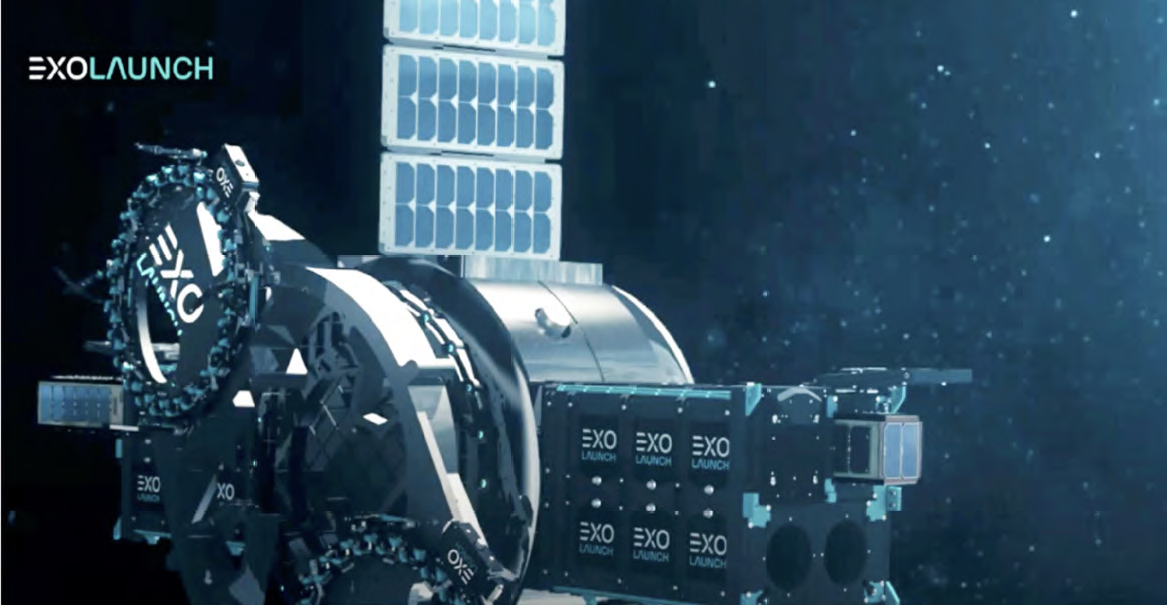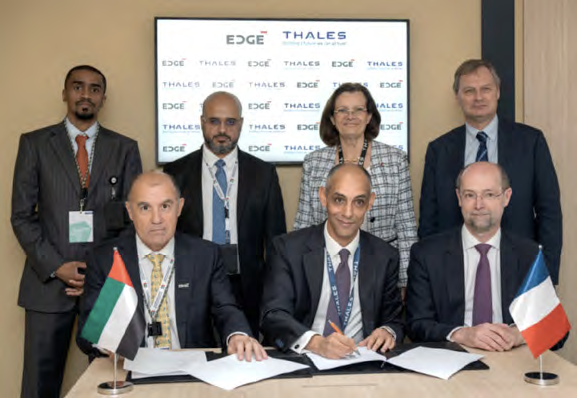Exolaunch integrates 42 satellite Transporter-11 rides
Exolaunch has successfully integrated the firm’s customer satellites for the upcoming Transporter-11 Rideshare mission with SpaceX — the mission is expected to be Exolaunch’s largest mission of 2024 thus far, servicing 42 smallsats for 23 global customers.

Exolaunch has successfully deployed satellites on all ten previous Transporter rideshare missions, including the most recent Transporter-10 launch in March 2024, pictured above. Image is courtesy of SpaceX.
Scheduled to lift off later this summer, the Transporter-11 Rideshare mission will launch on a SpaceX Falcon 9 from Vandenberg Space Force Base in California. This mission signifies Exolaunch’s ongoing commitment to advancing global access to space and marks the company’s participation in all 11 Transporter missions to date since the program’s inception.
Exolaunch’s customers on the Transporter-11 mission represent a diverse array of government space agencies, commercial companies, and academic research institutions, from the following nations: Argentina, Denmark, Finland, France, Germany, Lithuania, Poland, Spain, Taiwan, Turkey, United Kingdom, and the United States.
Exolaunch clients onboard this mission will receive the company’s decade of expertise in enabling successful deployments for nearly 400 satellites to date, and a comprehensive service package designed to effectively navigate complex technical, logistical, and legal processes.
This package includes launch capacity and mission planning, end-to-end testing, integration, global shipping, and the deployment of their satellites using Exolaunch’s flight-proven hardware.
More than 30 EXOpod Nova containerized deployers and CarboNIX ring-based separation systems will be utilized to support the deployment of customer satellites on this mission. These proprietary systems are part of Exolaunch’s renowned suite of satellite separation technologies and known for their reliability and effectiveness in space missions.
Integrations with the deployment systems have been successfully completed at Exolaunch’s headquarters in Berlin and globally for its cubesat customers, and the final integration campaign is currently underway at Vandenberg Space Force Base.
“We are honored to enable this launch campaign for 42 customer satellites on our largest mission of the year. We extend our gratitude to our customers for their continued loyalty and trust in Exolaunch’s services, and thank SpaceX for their excellent launch preparations,” said Robert Sproles, chief technology officer at Exolaunch.
“Our long-standing collaboration with SpaceX has been integral to Exolaunch’s own growth, and we are proud to have been a part of all Transporter launches since the inception of the highly successful Rideshare program,” said Jeanne Allarie, chief commercial officer at Exolaunch. “We look forward to launch and deployment of these satellites, further contributing to crucial developments in rideshare missions and access to space for all.”
EDGE + Thales enter strategic partnership partnership for comms development in the UAE
KATIM, an EDGE Group entity, and Thales, will start discussing the co- development of Software Defined Radio (SDR) technologies in the United Arab Emirates (UAE).

A declaration of intent was signed at the international defence and security show, Eurosatory, by (photo, from left) Didier Pagnoux, CEO of KATIM, and Abdelhafid Mordi, CEO THALES in the UAE and Christophe Groshenry, Vice President, Radio at THALES and, in the presence of Hamad Al Marar, Managing Director and CEO of EDGE Group, Waleid Al Mesmari, President, Space & Cyber Technologies of EDGE Group and Pascale Sourisse, President & CEO Thales International, and Christophe Dumas, CEO Thales Secure Communications & Information Systems in France.
To meet the demands of the UAE’s large-scale high-tech programs and its exportation needs, KATIM and Thales will work jointly on the full cycle development, production and maintenance of airborne and long range, high frequency (HF), radio communication solutions.
Both companies will bring their expertise to the partnership and will promote and export the co-developed solutions-based portfolio to the international market.
Didier Pagnoux, CEO of KATIM, said, “Partnering with Thales represents a significant milestone for EDGE, underscoring the global confidence in our leadership in advanced communications technology. By combining our expertise, we will develop sophisticated Software Defined Radio solutions that meet the rigorous demands of both domestic and international markets. This collaboration aligns with our goal of driving innovative secure communication solutions and fully supports the UAE’s ambitious global exports roadmap. We eagerly anticipate the transformative outcomes of our joint efforts.”
Christophe Salomon, Executive Vice-President, Thales Secure Communications & Information Systems, said, “As a worldwide leader for tactical radios and on-board communication solutions for land, air and naval forces, Thales is proud to partner with EDGE in radio communications solutions. The partnership is fully aligned with the Group’s development strategy in the UAE.”
WISeKey announces developments in secure IoT connectivity + upcoming smallsats launch
WISeKey International Holding Ltd. (“WISeKey”) (SIX: WIHN, NASDAQ: WKEY) has announced that its subsidiary, WISeSat.Space, is engaging in new developments that include the launch of a new generation of satellites, installation of a satellite antenna in Switzerland, development of a neutral satellite constellation from Europe, and collaboration with the Swiss Army.

Artistic rendition of WISeSat’s WISeSat-1 and WISeSat-2 smallsats on-orbit. In Q4 2024, WISeSat.Space is set to launch a new generation of satellites from California. This launch will mark a significant milestone in the Company’s efforts to expand its satellite constellation, further enhancing its ability to provide global IoT connectivity and environmental monitoring. The new generation of satellites are expected to offer improved performance and capabilities, supporting a wide range of applications from climate change monitoring to disaster management and smart agriculture.
In the same quarter, WISeSat.Space plans to install a satellite antenna in Switzerland. This installation will enable the monitoring and management of its satellite constellation, ensuring optimal performance and reliability of its IoT connectivity solutions. This development underscores WISeSat.Space’s commitment to maintaining robust and secure satellite operations.
The Company is also currently developing a constellation of 88 additional low- orbit satellites to optimize global coverage for IoT devices and an enhanced WISeSat satellite, planned for launch in Q3 2024. This upgraded satellite will incorporate SEALSQ Corp. (“SEALSQ”) (NASDAQ: LAES) semiconductor technology and WISeKey cryptographic keys, designed to boost performance in space and communication capabilities.
To date, the Company has successfully launched 17 low-orbit satellites in cooperation with FOSSA Systems, primarily aboard SpaceX Transporter Rideshare missions.
An important aspect of WISeSat.Space’s initiative is the development of a dependent and neutral satellite constellation from Europe. Having a European-based satellite constellation is crucial for several reasons. First, it ensures data sovereignty and reduces reliance on non-European entities for critical data and services. This autonomy is essential for maintaining control over data security and privacy.
Second, a neutral European constellation can facilitate international cooperation and trust, as it is perceived as unbiased and not tied to any geopolitical agendas.
Lastly, it promotes technological independence and innovation within Europe, driving economic growth and creating high-tech jobs. This European-centric approach aligns with broader strategic goals of enhancing the region’s competitiveness and resilience in the global space sector.
WISeSat.Space has also established a partnership with the Swiss Army, which underscores the strategic importance of its satellite initiatives. This collaboration involves leveraging WISeSat.Space’s secure IoT connectivity solutions to enhance the Swiss Army’s operational capabilities.
By integrating satellite-based communication systems, the Swiss Army can improve its situational awareness, logistics, and disaster response efforts. This partnership not only strengthens national security but also exemplifies the critical role of space technology in modern defense strategies.
WISeSat.Space employs picosatellites and low-power sensors to create acost-effective and secure IoT connectivity solution. These smallsats are smaller and less expensive to launch than traditional satellites, making IoT connectivity more accessible. The constellation of picosatellites ensures global coverage, providing a reliable network for data collection and transmission.
Additional information: rb.gy/8zr4as

